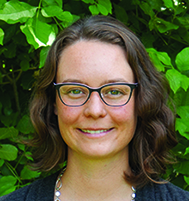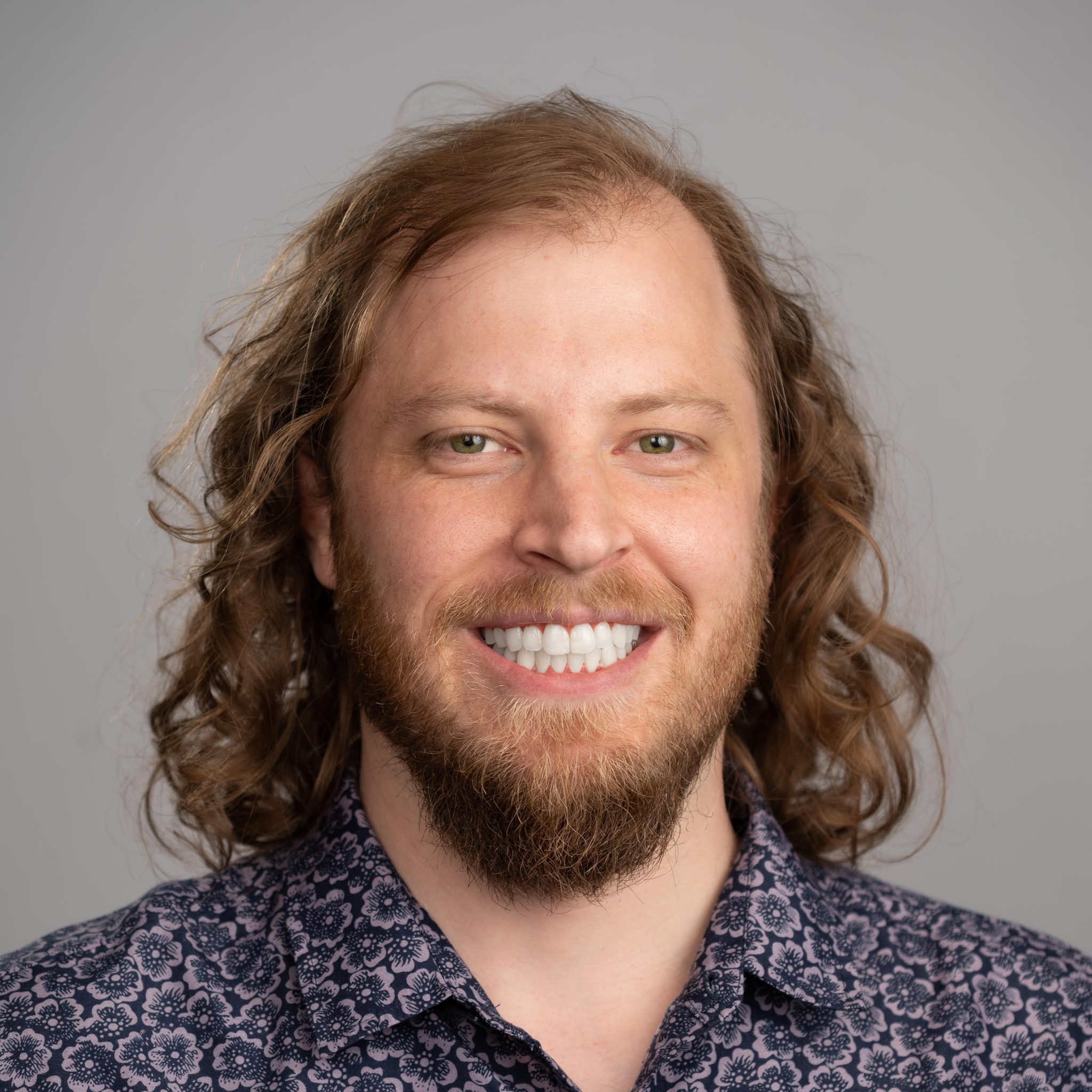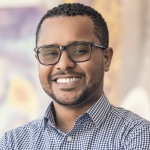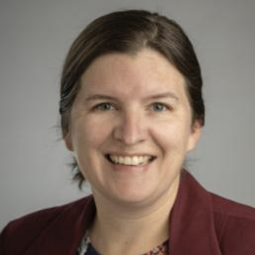Join the University of Michigan RNA community!
In 2019, the University of Michigan Biosciences Initiative charged the Center for RNA Biomedicine with the mission to hire five faculty (tenure track), in collaboration with various departments of the University. The first hire was Stephanie Moon, Ph.D., who joined the Center for RNA Biomedicine and the department of Human Genetics in January 2020. Chase Weidmann, Ph.D., is our second RNA Faculty Scholar hire. He fills our BSI position focused on “RNA protein interaction profiling.” Weidmann started on September 1, 2021. They both were awarded U-M Biological Sciences Scholars Program (BSSP) designation.
Our second phase commenced in 2022 with the hiring of RNA Faculty Scholar Jay Brito Querido, Ph.D., named a Biological Sciences Scholar by the University of Michigan Medical School and member of the University of Michigan Rogel Cancer Center. Rachel Niederer, Ph.D., Assistant Professor of Biological Chemistry and member of the University of Michigan Rogel Cancer Center rounds out the team as the fourth Assistant Professor hire. They both started on September 1, 2022.
The fifth and final faculty hire was Michelle Hastings, Ph.D., Professor of Pharmacology, Pfizer Upjohn Research Professor of Pharmacology, and Director, M-RNA Therapeutics, Center for RNA Biomedicine. Read more about Michelle on the Directors page.
See more information about these scholars below.

Assistant Professor of Human Genetics; Faculty Scholar of the Center for RNA Biomedicine; Affiliate Faculty, Biological Chemistry
(start date January 1, 2020)
smslmoon@umich.edu
Stephanie Moon, Ph.D., brings to Michigan extensive experience in the regulation of messenger RNA translation, single molecule level localization, and degradation in the contexts of stress and human disease.
Prior to coming to the U-M, Moon was a Howard Hughes Medical Institute postdoctoral fellow with Roy Parker at the University of Colorado, Boulder. She received her Ph.D. in pathology from Colorado State University.
Some of Moon’s achievements include: 2020-2022 Brain & Behavior Research Foundation NARSAD Young Investigator Grant ($70,000); 2020 Neuroscience Scholar, University of Michigan; 2019 Biological Sciences Scholar, University of Michigan; 2018-2020 National Institutes of Health Loan Repayment Program Award, National Center for Advancing Translational Sciences (NCATS) Pediatric-extramural program.
Watch a video about Moon’s research interests

Assistant Professor of Biological Chemistry; Faculty Scholar of the Center for RNA Biomedicine;
(start date September 1, 2021)
cweidman@umich.edu
Chase Weidmann, Ph.D., brings expertise in RNA biochemistry, molecular biology, chemical probing, next-gen sequencing and bioinformatics. At U-M, he will build a program aimed at elucidating long noncoding RNA function using high-throughput chemical probing of RNA:protein complexes.
Weidmann received his Ph.D. in Biological Chemistry from the University of Michigan in 2015. From 2015 to 2020, he was an American Cancer Society Postdoctoral Fellow with Kevin Weeks at the University of North Carolina – Chapel Hill. He is currently a Postdoctoral Research Scholar with Ben Major at the Washington University School of Medicine in St. Louis.
Read about Weidmann’s journey into science: “Exploring unknown territories”
Read his scientific feature
Watch his introduction video

Assistant Professor of Biological Chemistry and Life Sciences Institute; Faculty Scholar of the Center for RNA Biomedicine; (start date September 1, 2022)
A native of Cape Verde, Dr. Querido received undergraduate and M.S. degrees at the University of Lisbon. For his Ph.D., Dr. Jay Querido worked with Dr. Yaser Hashem in Strasbourg, France using cryo-EM to study parasite-specific ribosomal proteins. Dr. Querido then moved to Dr. Venki Ramakrishnan’s lab at the MRC Laboratory of Molecular Biology for post-doctoral work, where he has tackled longstanding questions surrounding translation initiation on eukaryotic mRNAs. Most prominently, Dr. Querido determined the structure of a 48S translation initiation complex and suggested a novel mechanism for ribosome recruitment and mRNA scanning (Brito Querido et al., Science 2020).
Future Scientific Plans:
Currently, Dr. Querido is exploring translation initiation on structured mRNAs and the role of the human tumor suppressor protein Pdcd4 in regulating translation. Dr. Querido has exciting plans to continue in this field, with a goal of understanding the many ways in which RNA helicases regulate gene expression in health and disease.
Michigan Research Experts Profile
Watch a video about Querido’s research

Assistant Professor of Biological Chemistry; Faculty Scholar of the Center for RNA Biomedicine;
(start date September 1, 2022)
Dr. Rachel Niederer completed her undergraduate degree at the University of Maryland, College Park in Biochemistry and Cell Biology/Molecular Genetics where she worked with Dr. Jon Dinman to study the effect of RNA modifications on translational fidelity. She went on to obtain her Ph.D. from John Hopkins under the mentorship of Dr. David Zappula, where she defined shared structural and functional features in telomerase RNA and explored the transcriptional response to telomere loss and senescence. Dr. Niederer carried out postdoctoral studies first with Dr. Melissa Moore at the University of Massachusetts and then (when Dr. Moore moved to Moderna) with Dr. Wendy Gilbert at Yale studying mechanisms of translational control. Rachel developed a novel method to rapidly and quantitatively measure ribosome recruitment to thousands of 5’-UTR sequences to define features controlling translation initiation. This approach, termed Direct Analysis of Ribosome Targeting (DART), published this spring in Cell Systems, has uncovered hundreds of new, functional RNA elements in yeast that differ in their ability to recruit ribosomes and to act as sequence-specific translational repressors.
Future Scientific Plans:
Dr. Niederer’s laboratory will explore mechanisms of translational control. She will bring a new set of cutting-edge approaches for studying translation initiation to the Department of Biological Chemistry, the Center for RNA Biomedicine, and the broader UM community.
Michigan Research Experts Profile
Watch a video about Niederer’s work
